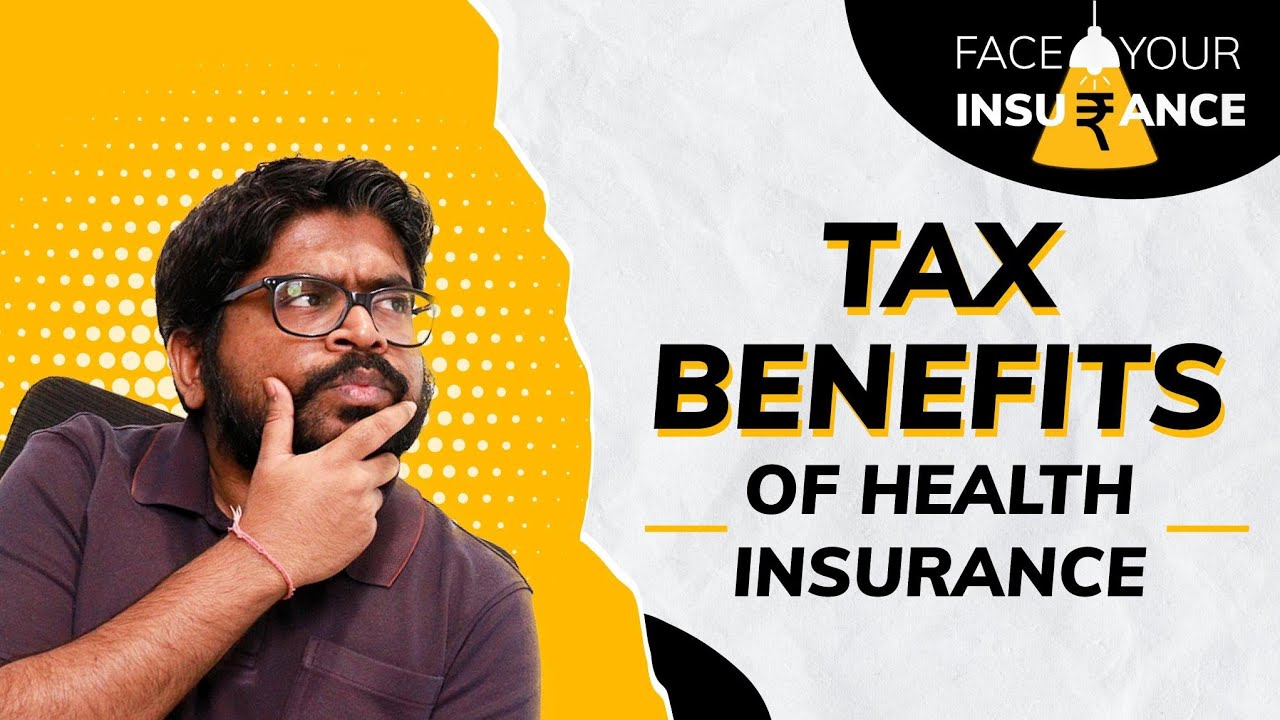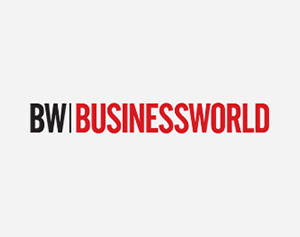Health Insurance Tax Benefits
Tax Benefits of Health Insurance
9000+
Cashless Hospitals
2.5 Crore+
Lives Insured
4.5 Lacs+
Claims Settled
I agree to the Terms & Conditions
Get Exclusive Porting Benefits

Buy Health Insurance, Up to 20% Discount
Port Existing Policy
9000+
Cashless Hospitals
2.5 Crore+
Lives Insured
4.5 Lacs+
Claims Settled
What is Section 80D of the Income Tax Act?
The Income Tax Act's Section 80D allows individuals to claim a deduction of up to ₹ 25,000 from their taxes for the health insurance paid within a particular fiscal year. However, senior individuals (above 60 years of age) can claim a deduction of up to ₹ 50,000 per financial year. Therefore, people can benefit from tax savings under section 80D by buying insurance for themselves, their spouses, parents, and children.
Suppose you are giving some of your pocket money to buy something important like medicine for your family to help them get better. The government says, “Hey, that’s a good thing you are doing. Let us give you some reward”. 😄
Similarly, when you pay premiums under your health insurance for your family's well-being, section 80D of the Income Tax Act rewards you with tax deductibles you can claim to save on these premiums.
Who is Eligible for Tax Deduction Under Section 80D?
One of the easiest ways to reduce income taxes and get health insurance premium deductions is through section 80D of income tax. However, not everyone is eligible to claim a deduction. Here is a brief list of who is eligible and who is excluded from claiming a tax benefit in health insurance under section 80D of income tax.
What Deductions are Allowed Under Section 80D?
In general, the deductions under 80D are of different types. It includes:
- The premium paid under health insurance for self, spouse, children and parents.
- Costs associated with preventive health check-ups (health checkups, physical examinations, blood tests, etc.)
- The cost involved in treating a senior citizen’s health (above 60 years of age) who is not covered under a health insurance policy.
The tax deductions available under all the different types vary. You can easily calculate your tax deductions under 80D by considering the coverage options and premium paid.
Tax Deduction on Health Insurance Premium Paid for Parents Under Section 80D
People who pay their parents' health insurance premiums can claim additional mediclaim deductions with 80D. For getting a tax benefit in health insurance under 80D, you can claim up to ₹25,000 if your parents are under 60 years of age and you can claim up to ₹50,000 if your parents are above 60 years of age.
Confused? Don’t worry! Here is an example to make you understand this better.
Mr. Mehta (54 years old) pays a premium of ₹30,000 annually under health insurance for his family. In addition, he also pays a premium of ₹35,000 annually for his parents (aged below 60 years). In such a case, what will be his tax deductible?
Hence, Mr. Mehta can claim a total deductible in a year of only ₹50,000 after paying a premium for himself and his parents.
Preventive Health Check-ups under Section 80D
Preventive Health Checks are routine medical examinations that identify a specific illness through early diagnosis and tests. Therefore, the government offers tax deductions on preventive health checkups under 80D so that a person can get their regular checkups.
The maximum deduction under section 80D for preventative health examinations in a financial year is ₹ 5,000. You, your parents, your spouse and your dependent children may claim the benefits for medical checkups.
For easy understanding, let’s again take Mr. Mehta’s example.
Mr. Mehta (54 years old) pays a premium of ₹30,000 annually under health insurance for his family. He also had a regular health checkup with his children and wife and spent ₹15,000. In addition, he also pays a premium of ₹35,000 annually for his parents (aged below 60 years) and spends ₹12,000 for their checkups. In such a case, what will be his deductible?
Hence, Mr. Mehta can claim a total deductible in a year of only ₹60,000 after paying a premium for himself and his parents and spending on preventive health checkups.
Can Medical Expenses Be Claimed Under Section 80D?
Yes, the medical expenses can be claimed under section 80D only for senior citizens. They need higher attention due to their growing age and numerous health issues. And thus, they are required to pay higher premiums to cover everything for their good health. These high premiums cannot be afforded by every individual. Thus, section 80D offers tax deductions for medical expenses for senior citizens who do not have an insurance.
If you are paying the medical expenses of your parents (who are above 60 years old) who are not covered under any health insurance, you can claim a tax deduction under 80D. The maximum annual deduction is ₹50,000, including health insurance premiums (if any) and medical expenses.
Difference Between Section 80D and Section 80C
Section 80D and Section 80C appear the same for most people, but the case is not so. Both acts differ in terms of purpose, maximum deduction, and premium insured under different insurance. Here is a chart that highlights the difference between Section 80D and Section 80C of Income Tax.
In brief, Section 80D focuses on health insurance and medical expenses, helping you save on taxes related to your and your family's health whereas Section 80C covers various savings, investments, and specific expenses.
How Much Tax Benefit Can You Get on Health Insurance?
The table below lists the section 80D tax benefits related to health insurance. It shows the maximum tax deductions for self, spouse, dependent children, and parents. The following deductions apply to all plans designated as 80D medical insurance.
Disclaimer: You can only claim these tax deductions under 80D with the Old Tax Regime. The New Tax Regime does not offer any tax deduction under 80D.
Tax Benefits in Health Insurance Simplified by Digit
Did you know your health insurance can help you save money on taxes too?
In this video, we unravel how health insurance isn’t just a shield for medical expenses, it’s also a smart move for your finances. Learn how to make the most of your policy and cut down your taxable income on your health insurance policy.

Multi-year Health Insurance Premium Deductions Under Section 80D
In order to take advantage of the long-term policy discount provided by Indian insurance firms, many consumers get multi-year health insurance. Under Section 80D of the Income Tax Act, you can get multi-year health insurance policies and pay their premiums in one amount at the time of purchase. This premium amount can be claimed across different years.
Furthermore, tax deductions on multi-year health insurance premiums are ₹25,000 for people under the age of 60 and ₹50,000 for senior citizens (above age 60). It is much more similar to one-year health insurance policies.
For Example: To better understand, Mr. Mehta paid around ₹45,000 premium to buy a 3-year health insurance policy. So, under section 80D, he can claim a tax deduction of ₹15000 per financial year to cover the cost of the premium.
Critical Illness Coverage Under Section 80D
Any critical illness or medical emergency is unpredictable and causes a lot of expenses that cannot be easily afforded. Even if a person is diagnosed with dengue, a few days of hospitalization might be quite expensive. Now imagine if someone in your family has to undergo treatment for a serious illness such as a heart arrest, stroke, or cancer. The expense will reach the skies.
In such cases, it is important to have health insurance that can reduce your financial burden. Such critical illnesses tax deductions are covered under Income tax, section 80D for health insurance.
What are the Deducations Available Under Section 80DD?
Section 80DD of the Income Tax Act provides a deduction for individuals who incur expenses on medical treatment, care, and rehabilitation for a disabled person. Depending on the level of disability, one can claim a maximum deduction of ₹75,000 to ₹1,25,000.
Deduction Under Section 80DD: Treatment of a Dependent with Disability
A dependent who is a person with a disability can undergo several expenses related to medical care, checkups, rehabilitation and training. These costs can be claimed under the section 80DD of income tax. People who provide care and coverage for disabled dependents and require some financial support can claim tax deductions under this section. The dependent can be spouse, children, siblings or parents with a diasability.
The tax deduction under 80DD can be made based on the level of disability.
Note: The dependent person with a disability must include a disability certificate from the federal and state governments with their tax filings in order to be eligible for this deduction.
Deduction Under Section 80DDB: Treatment of Specified Illnesses
Some serious illnesses, such as Cancer, AIDS, neurological problems, chronic renal failure, etc., require significant treatment costs. Section 80DDB of Income Tax allows the taxpayer or their dependents to deduct the involved medical expenses in treating such serious illnesses. Medical costs incurred for treating you or a dependent person, such as your spouse, children, siblings or parents having serious illnesses, can be deducted.
The tax deduction under 80DDB is different for different age groups.
Note: The taxpayer must provide legitimate documentation in order to claim the deduction under Income Tax Section 80DDB. Valid evidence under this section is a certificate or prescription provided by a designated medical professional holding a degree that is recognized by the Medical Council of India.
Benefits of Section 80D in Health Insurance
Health Insurance Tax Benefit for Senior Citizens
Health insurance premiums for senior citizens are always on the higher side. Insurance companies may also be unwilling to provide a health cover tax benefit for those who are old or suffer from pre-existing ailments.
However, Budget 2018 provided some relief for senior citizens who have high medical expenses and are unable to buy health insurance due to pre-existing ailments or can't afford high premiums.
The Budget has amended Section 80D, which allows a maximum deduction of ₹50,000 for medical expenses incurred on senior citizens. This deduction can be claimed by the senior citizen himself/herself or by his/her children if the children are incurring medical expenses for their senior citizen parents.
For Example, Mr. Mehta has paid ₹53,000 for his senior citizen parent, who did not have a health insurance policy. He can claim a total deduction of ₹50,000 under the Section 80D.
Mode of Payment to Avail Deductions Under Section 80D
Do you know the mode of payment while paying your premium or expenses can decide your eligibility for claiming deduction from section 80D? Yes, there are certain modes of payment that are specified under section 80D that make you eligible for availing deduction. It includes:
How to Claim a Deduction Under Section 80D?
The process of claiming the section 80D deduction is quite easy. It just requires documentation for the mode of payment of insurance and health checkups. The claiming can be done in two ways:
- By providing proof of payment for medical expenses and insurance premiums to your employer.
- By directly claiming the deductions while filing your Income Tax Returns (ITR)
Follow the below steps in case you are filing your ITR:
- Step 1: Visit Income Tax Portal
- Step 2: Log in to your account or create a new one to file the ITR. Fill in your required details
- Step 3: To claim the deductions on medical insurance premiums, visit the “Deductions” column on your ITR filing.
- Step 4: Select the condition under which you are claiming a deduction for yourself, for your parents, spouse, children or siblings.
- Step 5: Provide the supporting documents especially the receipts of premiums paid and expenses on preventive health checkups. Once the documents are verified, you will receive the tax deductions.
What Documents are Required to Claim the Deduction?
The documents required to claim the tax deduction under section 80D include:
- The receipts of premiums paid for the health insurance show the family members' names, relationships and ages.
- 80D insurance certificate for a premium paid for a parent’s health policy.
- Receipts or copies of the expenses incurred due to Preventive health checkups.
Some other documents essential in filing for an ITR include:
- Aadhar Card
- PAN Card
- Form-16
- Bank Statement
What are the Exclusions Under Section 80D?
The following are a few of the exclusions listed in section 80D of the Income Tax Act.
- You cannot claim for a premium amount that is not paid during the fiscal year
- If your employer covers you under a group health insurance, you cannot claim through 80D
- Any amount given in support of grandparents, siblings, working children, or any other relations
- If the premium amount paid for the health insurance is done with cash
- You cannot claim for a higher amount than your particular age group's maximum limit
Things to Remember Before Availing Tax Deductions Under Section 80D
- Thoroughly read your policy for any tax exemptions
- To avail of deduction, the premium should be paid in any mode other than cash. However, the payment for Preventive Health check-ups can be made in cash.
- The maximum deduction under section 80D can be Rs 1,00,000 if you buy health insurance for yourself or your parents and both you and your parents are senior citizens.
- HUFs (Hindu Undivided Family) can also claim this deduction for the premium paid to ensure the health of any member of the HUF.
- Benefits under Section 80D are available over and above the limit of ₹1.5 lakh under section 80C.
- The amount available for senior citizens’ deductions can also be spent on medical expenses.
- If the health insurance premium is paid in one go, it allows tax benefits for the number of years of insurance coverage.
Health insurance is a way to safeguard your pocket from medical expenses. Under Section 80D of the Income Tax Act, you can avail of tax benefits on the premiums paid towards your health insurance. This makes a health insurance policy a beneficial tax-planning tool, which is definitely a wise investment for your future.






















